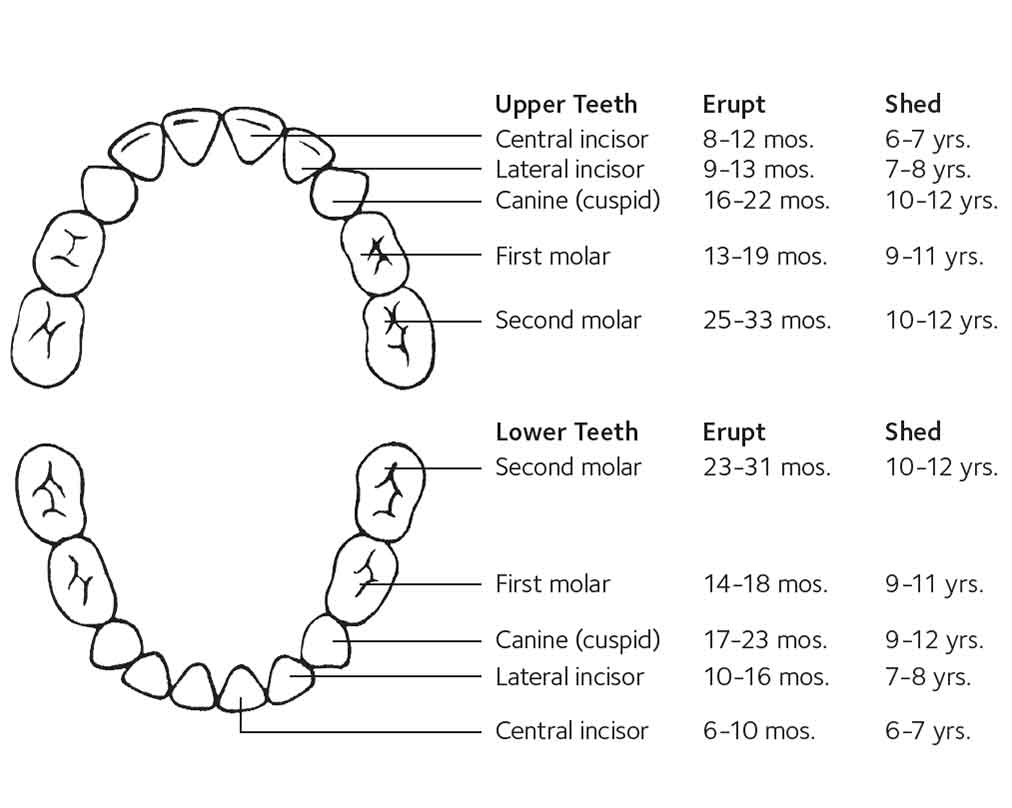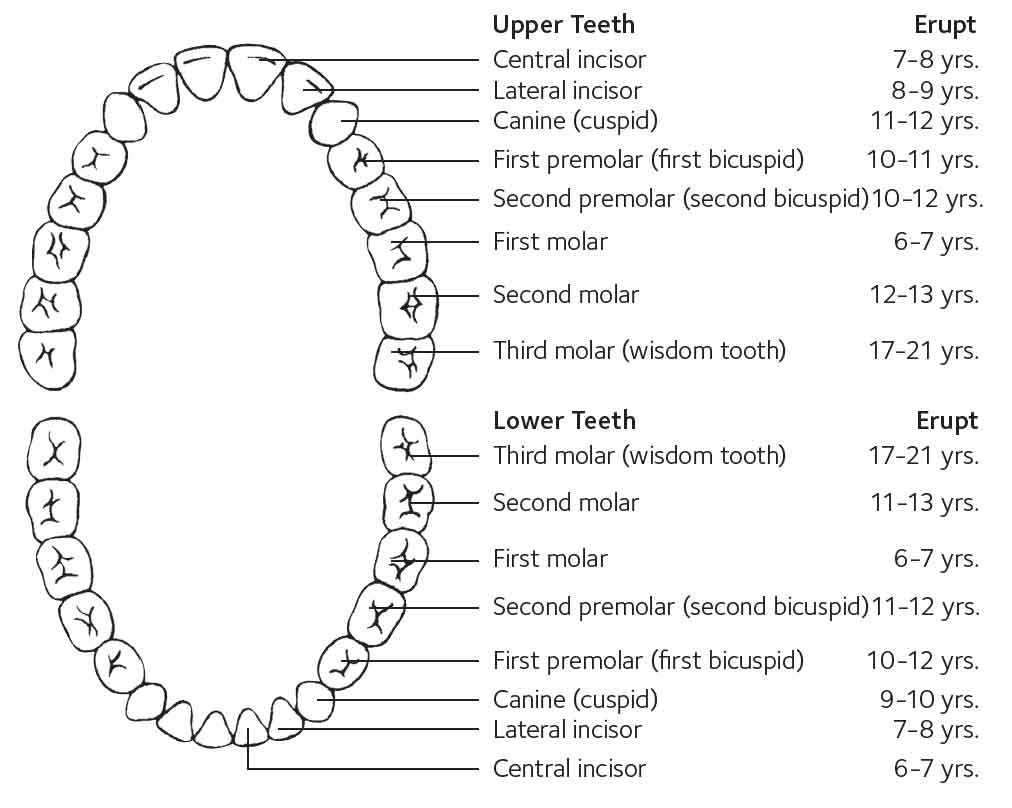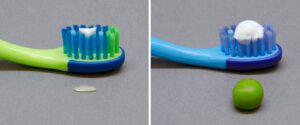
When do baby teeth come in and when do they fall out?
Your child’s baby teeth typically begin to emerge around 6 months of age, gradually making way for adult teeth as they are shed over time. By the age of 21, most individuals have their full set of adult teeth, with the last four being the wisdom teeth.
Strong, healthy teeth enable children to chew, speak, and smile confidently. Additionally, they play a pivotal role in shaping their face and ensuring proper alignment for adult teeth to come in correctly.
Prior to your child undergoing general anesthesia, you can expect a call from a scheduling nurse who will provide detailed instructions regarding your child’s dietary intake. For infants younger than 12 months there will be other specific guidelines that they will give you.
Children aged one and above should refrain from consuming solid foods or non-clear liquids after midnight the night (or 8 hours prior) before the procedure. This restriction includes milk, formula, juices with pulp, chewing gum, or candy. The nurse or anesthesiologist will give other guidelines for clear liquids, such as water, Pedialyte, Kool-Aid, or transparent juices.
Regardless of your child’s age, adherence to the provided instructions is crucial. If your child takes daily medication, administer it as instructed by the anesthesiologist or the nurse. Additionally, you might consider bringing a comforting item from home for your child to hold during the administration of anesthesia.
The provided charts outline the names of both baby and adult teeth. Accompanying visuals illustrate the typical eruption and shedding times for each tooth. However, it’s important to note that children may experience variations in the timing of tooth eruption, with some teeth appearing earlier or later than depicted in the charts.
Primary (baby teeth) eruption chart

Permanent (adult teeth) eruption chart

Transitioning from baby teeth to adult teeth
Many children experience a phase known as mixed dentition, characterized by a combination of baby and adult teeth. This can result in an uneven smile, featuring a mix of big, small, crowded, or even missing teeth. Typically, smiles become more uniform once all adult teeth have fully emerged.
Around the age of 7, your child will undergo a dental “growth and development check” conducted by a pediatric dentist to ensure their adult teeth are emerging correctly and their back teeth are functioning as they should. X-rays (like a panoramic x-ray) may also be taken to assess their dental health. Early intervention is recommended if any issues with their teeth or bite are identified.
Adult teeth begin their formation beneath the baby teeth. Once the baby teeth are shed, the adult teeth will emerge through the gums.
Maintaining a healthy mouth is crucial to your child’s overall health.

Are you looking for a dental home for your child? Call us to schedule an appointment!
Call us and schedule your child’s appointment today: (702)586-4347
Healthy Snack Options for Your Child’s Dental Health
Healthy Snack Options for Your Child’s Dental Health Many children...
Read MoreShould I give my child bottled or tap water?
Should I give my child bottled or tap water? Benefits...
Read MoreShould I use fluoride toothpaste for kids?
Should I use fluoride toothpaste for kids? Using fluoride toothpaste...
Read More




